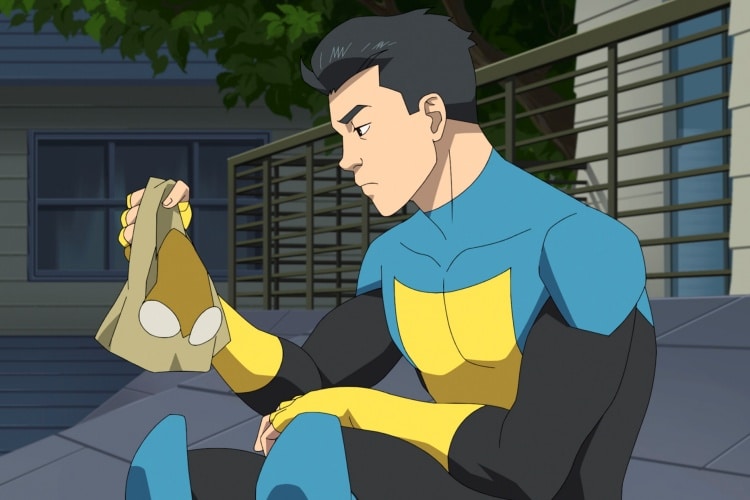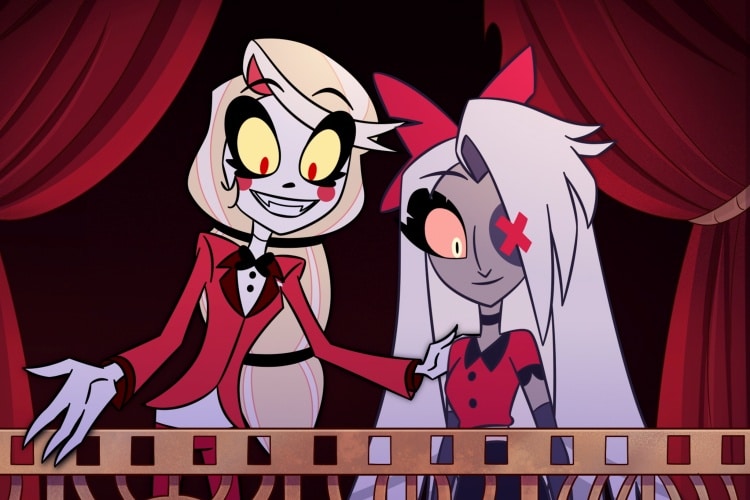Ooh, la la! C’est tres bien!
Main Cast: Audrey Tautou, Mathieu Kassovitz, Claire Maurier
Director: Jean-Pierre Jeunet
I really don’t watch a lot of foreign films. At least subtitled foreign films. I know that means missing out on a lot of great movies, but there are so many movies in English that I’m trying to get around to seeing, that adding the entire foreign market would very likely make my Netflix queue spontaneously combust. That said I do occasionally make exceptions. Foreign films receiving widespread acclaim may make their way into my house now and then. One of these films is the 2001 French release Amélie.
Amélie is a French film starring the beguiling Audrey Tatou in the title role. Amélie is a lonely child. Her parents are eccentric and create for the girl an insular existence that only intensifies after the death of her mother. As a result, Amélie grows up into a shy, reserved woman without a lot of the social skills that would allow her to overcome her unconventional upbringing. She doesn’t really want to be alone, but doesn’t know how to go about changing her circumstance.
Amélie works in a diner, the Two Windmills, in Paris. She is friendly, but not really friends, with the rest of the staff. We have Suzanne (Claire Maurier), who owns the establishment, Gina (Clotilde Mollet), a fellow waitress being hounded by a jealous ex-boyfriend (Dominique Pinon), and the tobacconist Georgette (Isabelle Nanty), a hypochondriac of the highest order. Amélie lives in an apartment surrounded by neighbors she doesn’t know, but longs, in her way, to meet. The Glass Man (Serge Merlin), who paints in his room, the grocer (Urbain Cancelier), who verbally abuses his young employee (Jamel Debbouze), her lonely landlord (Yolande Moreau). Amélie knows of them, but never really leaves her own shell enough to actually know them. One day, her life is changed forever. She hears on TV of the death of Princess Diana. In her surprise, she drops a bauble she’s holding, which rolls across the bathroom floor, strikes a tile and reveals a secret hiding spot. Forgetting about the Princess, Amélie finds a long forgotten child’s treasure in that space. She becomes intent on returning this to its rightful owner. If all goes well, she tells herself, she’ll make it her mission to stealthily change the lives of others. To be the invisible Good Samaritan. As for her own life, well, she hasn’t gotten that far in her planning. Maybe she just can’t – for that requires taking a risk she simply has never taken before – the risk of truly allowing others into her life.
Amélie makes quite a fine stealth life changer. Well, most of the time at least. In the process she quite incidentally comes across a young man with whom she has some kind of instant karma. Now she must make a choice. Does she remain an underground shadow of a person, or does she come into the light?
Amélie is a delightful fairy tale. A girl afraid to live her own life searching for happiness by vicariously living the lives of others, only to find that she has more courage and power than she imagined. A fairly simple story, really, made magical by an almost overwhelming attention to detail. We have a somber narrator (Andre Dussollier) telling us of the often hilarious quirks and foibles of our characters, making each more complete and infinitely more likeable for their oddities. We have a set design (Marie-Laure Valla) literally crammed with, well, stuff. Knick-knacks abound, making every scene busy and vibrant while somehow avoiding complete sensory overload. And we have an amazingly rich, deep color palette. No stark whites or bland, washed out tones here. Clothing, make up, room decor (particularly anything surrounding Amélie herself) all in a crazy Technicolor that makes them hyper-real, furthering the feeling of fantasy. Cinematographer Bruno Delbonnel takes a no-holds-barred approach to color, and treats us to wonderful and inventive shots of what could be very mundane (writing the diner menu becomes clever, sweet and very symbolic of Amélie’s self-imposed isolation). Amélie is allowed to interact with the other characters, the narrator, and the audience, giving the entire film a slightly surreal edge that works marvelously well. In one particular instance, the narrator tells of Amélie’s thoughts, actually a question, which she then turns and answers directly to the camera. It’s absolutely delightful.
While each performer really does a very nice job with their slice of character, this film belongs entirely to Audrey Tautou as Amélie. She brings to Amélie a sweet but sad feeling of being detached from the world around her. Perhaps the greatest achievement of Tautou in this role is her ability to convey meaning with facial expression. This isn’t a dialogue heavy film, and Tautou is called upon to make Amélie a complete character under a deadpan narrator and with looks and actions. She does this brilliantly, with the shy but sly smile of Amélie becoming the hallmark of the film. Amélie also has an innocent air about her, complimented nicely by her neo-1950’s wardrobe and little girl bangs. Tautou pulls off one of the hardest of all rom/com feats, being appealing to both men and women. She’s adorable without being disgustingly perfect. Her internal monologues are sarcastically clever (her explanation for why her date may be late is absolutely hilarious), and she has a sly, mischievous side that gives her a little edge (her hijinks in the grocers apartment being an excellent example). The filmmakers here have made Amélie a rom/com heroine for actual adults, rather than the insipid, desperate and markedly unedgy characters we usually get (I’m thinking about almost anything with Meg Ryan, here).
Director Jean-Pierre Jeunet and writers Jeunet and Guillaume Laurant deliver a most enjoyable modern day fairy tale with a twist. Or I should say a twist every time you turn around. The creative use of sets, color, voice over narration and especially the talents of Audrey Tautou make Amélie a joy to watch. The unconventional approach to both character and audience just enhances an already exceptional film. Definitely fitting into the romantic comedy genre, Amélie is like a lesson on how to make a smart, funny, sweet and appealing rom/com that doesn’t gag half the population. I highly recommend the film, even for snobs like me who never see films with subtitles.

Sue reads a lot, writes a lot, edits a lot, and loves a good craft. She was deemed “too picky” to proofread her children’s school papers and wears this as a badge of honor. She is also proud of her aggressively average knitting skills She is the Editorial Director at Silver Beacon Marketing and an aspiring Crazy Cat Lady.






Leave a Reply